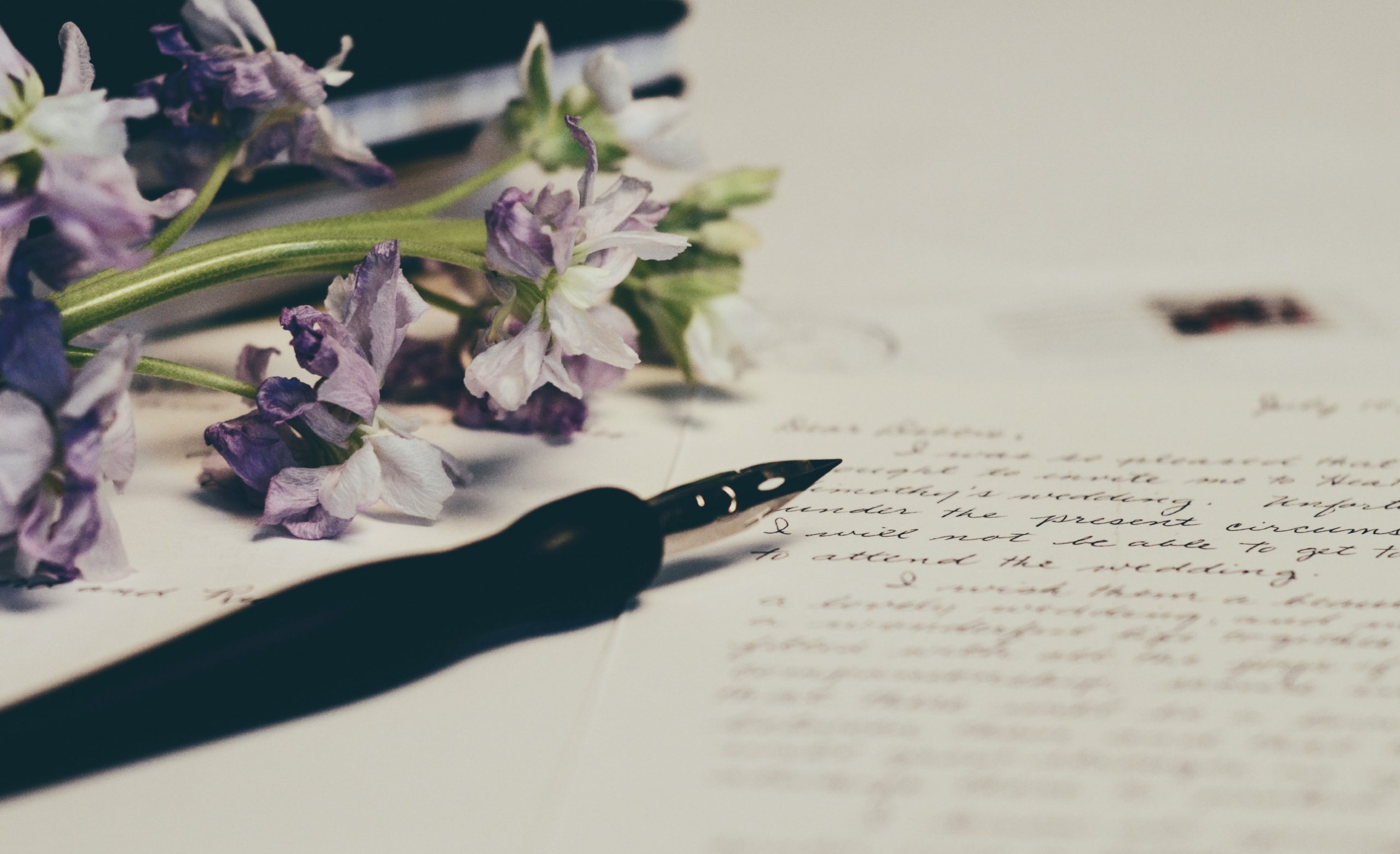
When was the last time you put pen to paper? Was it to write your grocery list? To write a forlorn letter to your beloved lost at sea? Or maybe you haven’t written anything down since high school. In the depths of our digital age, where iPhones have note pads and college students use their laptops to take lecture notes, there is little need in our day-to-day lives to sit and write the good old-fashioned way.
In the midst of the Covid-19 pandemic, we are seeing an ever-growing need to return to “simpler times” and, for those who find ourselves with a lot of spare time, dive into personal projects and hobbies. From baking bread, to adult colouring books, crocheting, to taking up instruments, many people are using this time to reignite old passions or delve into new ones.
When I was in my teens, I loved creative writing. I was an avid reader and would often write poems and short stories inspired by these narratives. I took creative writing in high school and it gave me the tools to express myself and make sense of the world around me. If you’re someone who’s looking for an outlet to express your thoughts and creative ideas, or are finding yourself at a standstill in your creative writing practice, here are 3 tips to get you on the write track (see what I did there).
1. Getting Started – Just Do it!
A great reason to start writing is, quite simply, because you want to! Regardless of experience or skill, you don’t have to be Margaret Atwood to begin or reap the benefits of a creative writing practice. But how do you start? Believe it or not, creative writers don’t just have ideas floating around in their heads 24/7, a lot of inspiration for writing comes from our everyday lives. Have you ever overheard a juicy piece of conversation on the bus? Seen a discarded shoe on the side walk and wondered how it got there? I bet you can find at least 5 ideas for a story, journal entry, or poem on your way to the grocery store.
By being aware of your surroundings and tapping into your curiosity, you are opening yourself to a whole slew of creative ideas—ask yourself questions about the things you see, then once you begin writing, answer those questions! A great way to keep track of these ideas and questions is to write them down! Send a text message to yourself, take a note in your phone, or carry a small notebook and pen around in your bag/pocket.
2. Writing Prompts Are Your Friend

Writing prompts, what are those? Quite simply, a writing prompt is a word, phrase, question, or scenario that inspires your piece, and is a great tool when you’ve got the itch to write but crickets in your brain. The best part? You don’t even have to come up with these yourself! My favorite way of being prompted is to text/ask a friend “What should I write about?” or “Tell me something you saw today.”
The internet is also a great resource. There are multiple websites devoted to giving writers quality prompts to propel them forward (for free). For example, if the prompt is “red eyes” I might write a poem about the last time I cried, or a short story about an evil spirit who lives in a forest. There is no wrong answer! You may also benefit from combining a writing prompt with a stream of consciousness exercise.
Imagine this, your prompt is “the park”, but your brain has suddenly forgotten every memory you’ve ever had of being at a park. Don’t panic, at the top of your page write “the park”, then underneath begin listing any and all words that you associate with the park. Don’t edit. Don’t stop until you’ve run out of ideas. Each word you write should build off of the previous word e.g the park, playing, game, board game, family game night, family feud, fight, conflict etc. You might find that your prompt doesn’t end up appearing in your piece at all, and that’s okay because now you’ve got this entire word bank to inspire you!
3. Stealing Other People’s Ideas (It’s not what you think!)
Plagiarism, bootlegs, copyright infringement—all forms of content theft that is frowned upon and illegal in most cases. However, writing that is inspired or influenced by existing works/authors is a common occurrence and is encouraged among writers. You might have heard the expression “Nothing is said which has not been said before.” This is an old quote by Roman playwright Terence—in this, he is referring to our ideas as merely a reflection of the works and ideas of those before us. When it comes to plagiarism Vs. inspiration in writing, the difference is that plagiarism is the theft of and passing of another’s work as your own, whereas inspiration is letting that writer’s work inform the themes, style, and topics that you pursue.

I once had a writing assignment in university where we had to take a poem and write an entire play based off of it. The poem I chose was “The Tyger” by William Blake—from the inspiration of that poem came a play about a village being terrorized by an animal that, you would later find out, is a shape shifting spirit that lives inside one of the villagers. It’s normal to shape your work after writers you admire. If you don’t enjoy reading books, there’s tons of inspiration to be gained from music, art, movies etc.
People have been telling stories since the dawn of time, and writing is an outlet to make sense of our lives, bring our ideas to life, and exercise our creativity. Are you a seasoned creative writer with tips of your own for combating writers block? A total beginner? Comment below! We’d love to hear about your creative writing journey, interests, tips, or tell us your favorite book/story!











